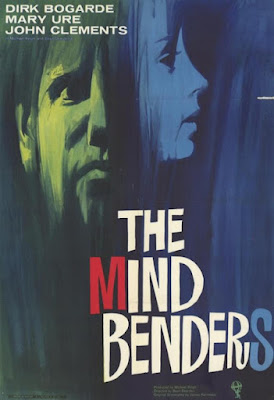Killers of the Flower Moon
Scorsese's latest is a corrosive epic that clearly reveals its shades of morality for everyone involved within the first third, then proceeds to deliberately track the insidious nature of violence and deluded companionship over the remaining three hours. Imagine if the walls closing in around Henry Hill in "Goodfellas" were protracted out for 180 minutes. That's the startling feeling that Scorsese manages to uphold in "Killers of the Flower Moon", but this time, the criminal activity mirrors that of the American mafia played out in the dustbowl setting on 1920's Oklahoma and the violence against the Osage Indian nation for their valuable oil land head rights. With his usual cast of heavyweights (DiCaprio and DeNiro), the biggest coup of the film goes to the steely beating heart of Lily Gladstone as "Killers of the Flower Moon" was changed from its FBI-instigated criminal investigative tone to a more Native-American centric point of view. It works wonders, no less because of the stellar, granite-faced supporting cast and a rhythmic editing style that constantly makes one gasp with horror at the nonchalant violence and overhead writhes of death encompassing the entire land. Like he's done for New York, Las Vegas, and even the bashing waters off a Japanese prisoner colony, Scorsese spiritually imbues nature with a fist of violence that's hard to shake.
Anatomy of a Fall
Justine Triet's masterful, slow examination of a death also places on trial the ebbs and flows of a marriage.... where every charged conversation is a motive for murder and perception shifts between parties wildly. Sandra Huller is the woman on trial after her husband's body is found outside the window of their three-story, snow-capped mountain chateau. Is it suicide, murder, or a simple accident? And like the best films that work in gradual shades of morality, "Anatomy of a Fall" is less concerned with what really happened than the verbal gymnastics and hidden emotions that might have led to all this. Employing a camera that's often trying to follow what's happening just as quickly as the audience (i.e. that startling whip pan when Huller's son is announced as a witness) and brilliant performances from all involved, "Anatomy of a Fall" is two-and-a-half hours of French courtroom politics trying to decode matters of the heart. It's dry, intelligent, and ultimately so haunting.
Priscilla
Sofia Coppola's best film since "Lost in Translation", "Priscilla" is a film that continues on with the filmmaker's fascination with interiority and impressionism. It's also a drastically (and wonderfully) different experience from last year's Baz Luhrman sonic fest about Elvis Presly. As Priscilla Presly, newcomer Cailee Spaeny embodies the love interest of a rock and roll icon with her own sense of permanent dislocation in one of two scenarios- either orbiting the yes-man-good-ol-boy universe of Elvis' lavishly repercussion-free dalliances, or quietly within the controlled alienation from Elvis himself. This is made clear when Priscilla first sits down to eat with the protracted Elvis family, filmed in profile by herself, dutifully nodding to others outside the frame. There's not much room for else, and Coppola deftly alternates between these two environments, peppered with heart-stopping needle drops and a keen awareness of the objects and textures that suffocatingly surround Priscilla. In fact, the best description I can provide of "Pricilla" is a film of quiet suffocation, made all the more enervating when the finale happens. It's no secret Elvis was a victim of explosive stardom, but at least someone survives this sinkhole universe of carnivorous public consumption. And a Dolly Parton needle drop is the perfect way to frame Priscilla's flight to freedom.




